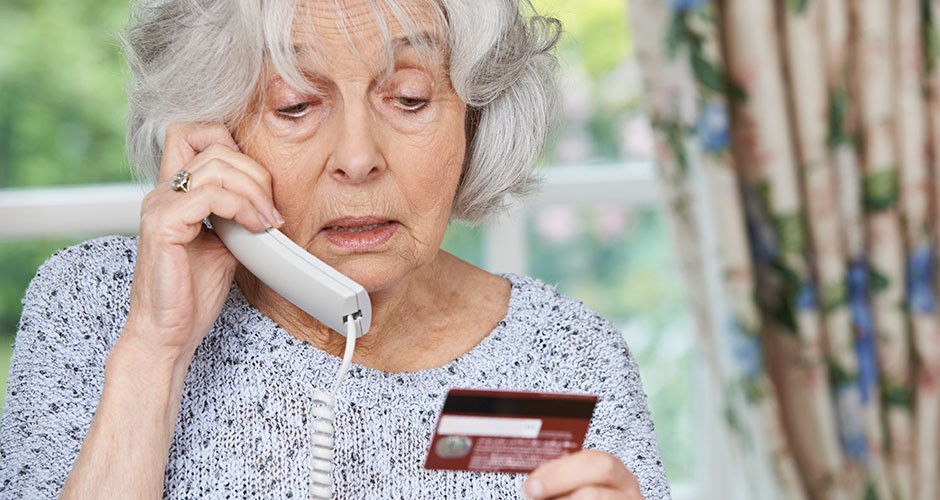Here are four common types of fraud that prey on senior citizens, and what you can do to protect yourself and your loved ones.
1. The imposter
This scam starts with a phone call or email. The scammer poses as a family member, friend, business or government official.
They ask you to wire money immediately — using a service such as MoneyGram or Western Union — to cover expenses such as a lien, a fine, outstanding debts, bills, rent, or an emergency like getting out of jail or fixing car troubles.
Remember: Medicare, the IRS and other government agencies will never call you and ask for your bank account information or require immediate wire transfers for outstanding payments.
What should you do?
Do not wire any money.
No government agency requires wire money transfers.
If it is an email, mark it as spam and delete the email. Do not respond to the email — this can open the door to identity theft.
If it is a phone call, do not offer any personal information. Hang up.
Call the family member or business the person was claiming to be to verify if the caller was really who they said they were.
2. You won!
If you get an email, letter or phone call claiming you’ve won a prize or sweepstakes, don’t get too excited just yet.
This scam will say you have to pay taxes or a fee before you can claim what you’ve won.
The scammer will ask for your bank account number or request a wire money transfer to get the prize to you.
What should you do?
Delete, block and ignore all of these offers.
Never share personal financial information with someone who contacts you. Don’t wire money to anyone you don’t know.
3. The fake charity
This scam comes unsolicited from what may appear to be a legitimate organization asking for a donation.
If the person is insisting the donation must be made immediately, or if they deflect or ignore your questions about how the money would be used, it’s probably a fraud.
What should you do?
Ask more questions, and do some research before making a donation.
These scams almost always ask for cash or a wire transfer — instead, ask to receive hard copies of the information so you can review it later.
Legitimate charities will comply, and also offer specific information about how your donation will be used in their charity.
Ask friends or look online to see if it’s a legitimate charity. Only donate to charities you know and trust.
4. Medicare and insurance needs
If someone calls you saying they’re from Medicare or your insurance company, you should immediately be suspicious. Medicare and most insurers never call unsolicited.
This scam typically asks for your bank account number to deposit funds, your Social Security number to verify coverage, or your Medicare number to re-issue an ID card.
What should you do?
Hang up. Never give out your bank account number, Social Security number or Medicare number to someone who calls you.
Call your health insurance provider or Medicare at (800) 633-4227 to verify if there are any legitimate needs for your account.
Red flags that it’s a scam:
- Insisting on an immediate payment
- Requesting a wire money transfer
- Requiring a bank account or Social Security number
- Promising items, discounts or prizes too good to be true
- Frightening threats of consequences or dangerous situations if action isn’t taken
- Pleading with you not to tell other family members (common with a scammer pretending to be a child or grandchild in need of help)
If you receive a scamming attempt, report it to your local police, and let your bank know of any fraudulent charges. Call family members who can help you make sure nothing was stolen from you.
You should also report any fraud attempt to the Federal Trade Commission at (877) 382-4357 or ftc.gov/complaint. Your complaint can help protect other people from these scammers.
Concerned you've been scammed?
We can help you figure out who to report it to.
Sources and additional resources: Federal Trade Commission, MetLife, Center for Problem-Oriented Policing, National Council on Aging, fraud.org




